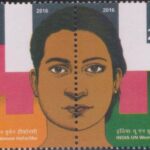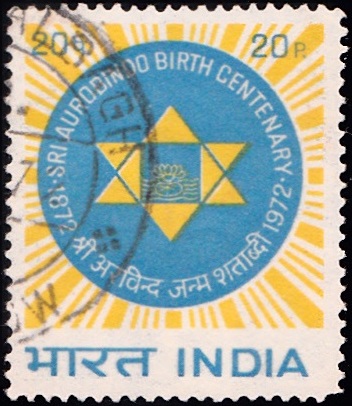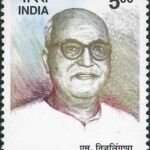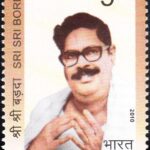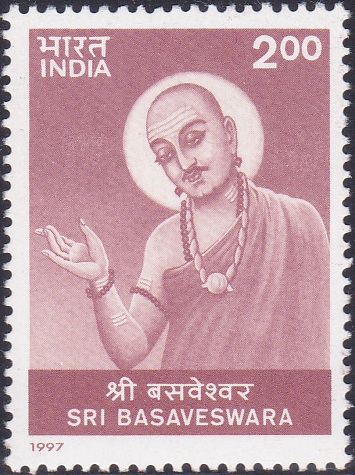
Sri Basaveswara 1997
A commemorative postage stamp on the 800th Death Anniversary of Sri Basaveshwara (1134-1196 A.D.), a 12th century Hindu saint-poet philosopher during king Bijjala I of Kalachuri dynasty in Karnataka :

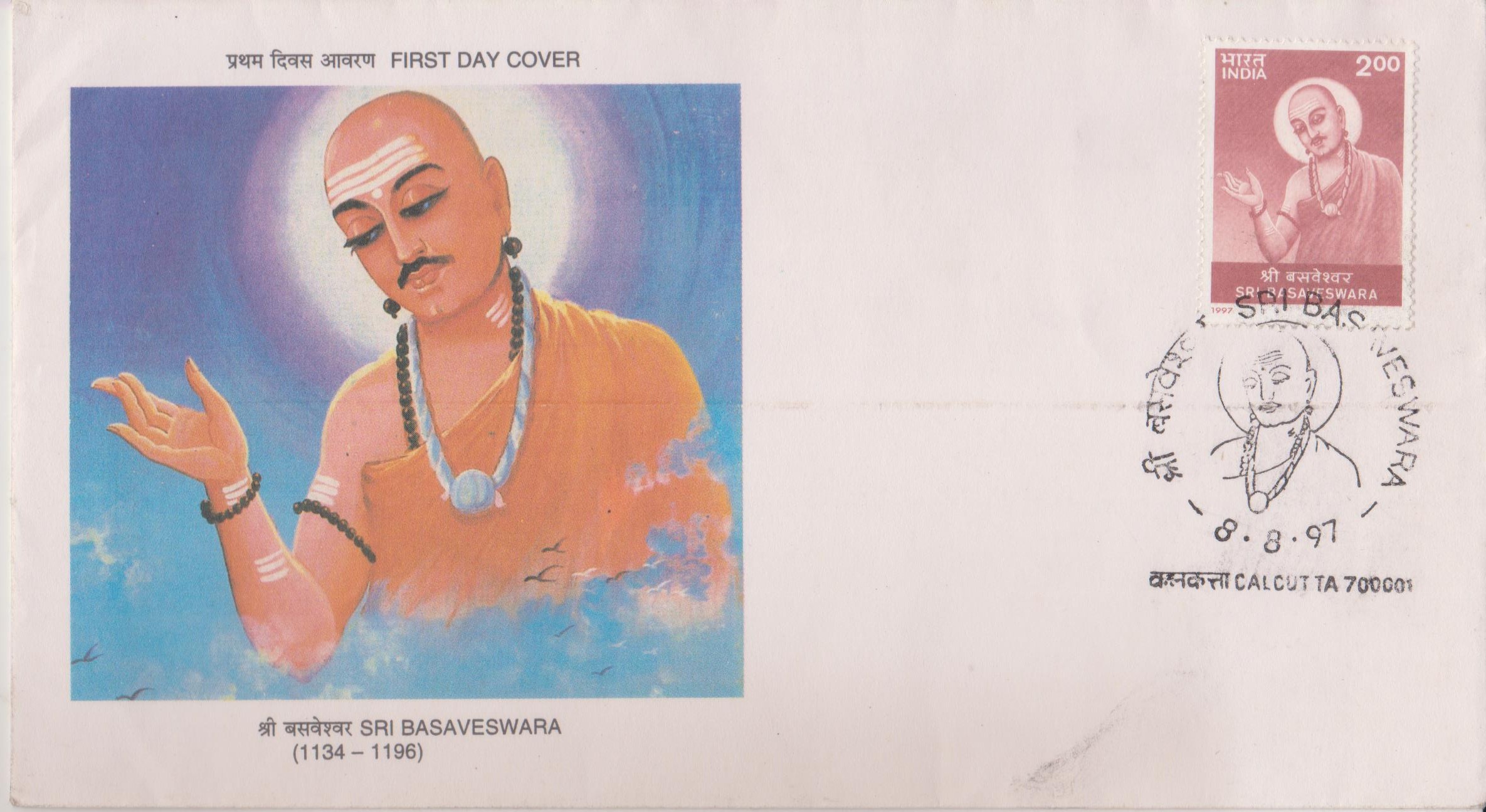 Issued by India
Issued by India
Issued on Aug 8, 1997
Issued for : In his crusade against the caste system and untouchability, 800 years ago Sri Basaveswara was a man ahead of his times. His 800th Death Anniversary celebrations concluding in August 1997, provide opportunity for the Department of Posts, issuing this special postage stamp, to commemorate this great philosopher and his contribution to the upliftment of society.
Credits :
Stamp & F.D.C. : Basava Dharma Peetha, Bijapur, Karnataka
Cancellation : Alka Sharma
Type : Stamp, Mint Condition
Colour : Single Colour
Denomination : 200 Paise
Overall size : 3.91 x 2.90 cms.
Printing size : 3.55 x 2.54 cms.
Perforation : 13 x 13
Paper : Indigenous un w/m Adhesive Gravure Coated Stamp Paper in reels 47 cms.
Stamps Printed : 0.4 Million
Number per issue sheet : 35
Printing Process : Photogravure
Printer : India Security Press, Nasik
Name : Basava
Born on 1105 CE at Basavana Bagewadi, Bijapur district, Karnataka, India
Died on 1168 CE at Kudalasangama, Karnataka, India
About :
- Sri Basaveswara was a great social reformer of 12th Century AD. He was an extraordinary thinker of high calibre, a great exponent of humanitarian values, and a mystic philosopher. Through short but pithy sayings called vachanas, he propounded his progressive thoughts, preaching equality and fraternity. He formulated and preached the tenets of a revolutionary new code of conduct : Lingayatism which preached equality of caste, creed and respect for women. He questioned the blind superstitions and social evils which prevailed in the then tradition-bound society.
- As a seeker of truth the young Basaveswara, left his parents and native village, and came to Kudala Sangama, where there was a reputed education centre (Gurukula). Seeking the shelter of Sri Jataveda Muni, head of the Gurukula, he continued his education, academic as well as spiritual.
- Then, Sri Basaveswara, moved from Kudala Sangama to Mangalavede and from there to Kalyana, the capital city of the Chalukyas. He married and joined the palace treasury as an accountant. Because of his honesty and sincerity he soon became treasury officer, and finance minister and subsequently rose to the post of Prime Minister. He brought about many reforms, implemented new plans and improved the economic and social status of the kingdom.
- He established a socio-spiritual academy ‘ANUBHAVA MANTAPA‘ which was a forum for free thought and encouraged discussions on deeper issues of morality. Through this organisation which worked as an open university he promoted adult education and literacy for all. Sri Basaveswara not only preached equality for women but implemented the idea, and as a result the ‘Anubhava Mantapa‘ had to its credit 770 saints among whom 60 were women.
- Sri Basaveswara‘s revolutionary ideas made the orthodox elements in society unite and he was exiled by the Chalukya King. Always known for nonviolence, he accepted his banishment without protest and retreated to Kudala Sangama where he spent his last years in meditation.
- Text : Basava Dharma Peetha, Bijapur, Karnataka.



